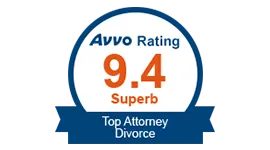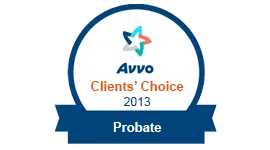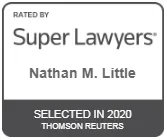Compassionate Middletown Lawyers Assist Debtors with Bankruptcy
Personalized assistance for consumers filing Chapter 7 or Chapter 13
If you’ve been struggling with mounting debt, you’ve probably wondered about ads you’ve seen for bankruptcy services. They promise quick, easy relief, but can you trust them to care about you and your family? To give personal attention to your concerns, and truthfully evaluate whether bankruptcy is the right move for you?
At Combs, Schaefer, Ball & Little, we’re committed to giving you legal assistance to improve your life. If you’re a candidate for bankruptcy, we’ll help you get every advantage from the law. With our capable bankruptcy lawyers representing you, the process can be straightforward, understandable, and immediately beneficial.
Ten myths about bankruptcy
False information can feed irrational fears and prevent you from taking advantage of this important legal protection. It’s important to dispel some widely held myths so you can decide whether bankruptcy is the right course for you:
- Bankruptcy is difficult. While there are many rules and the process can be confusing, it is not so difficult that you should avoid the benefits. If you have competent lawyers representing you, the process should be straightforward.
- If I file, I will lose all my property. Because of several exemptions built into the bankruptcy law, most filers do not lose any property at all. Even those with substantial property can usually keep it if they agree to pay back some or all of their debt.
- If I file, I will never get credit again. It is possible to rebuild your credit within months of filing bankruptcy. In many cases, consumers have an easier time obtaining credit after bankruptcy frees them from so much debt.
- If I file, I will lose my pension, IRA, or 401(k). In Ohio, these assets are generally exempt. You will keep your pension, IRA, and 401(k) in bankruptcy.
- If I file, I will lose my job. In most cases, employers will not find out about the bankruptcy, unless you choose to tell them. Either way, employers are not allowed to fire someone for filing bankruptcy or take other adverse action.
- My bankruptcy will hurt my spouse’s credit. When one spouse files for bankruptcy protection, his or her spouse’s credit is generally not affected.
- Bankruptcy will not allow me to pay the debts I want to pay. Although you cannot pick and choose immediately prior to filing for bankruptcy, after your discharge, you can choose to repay debts if you are so inclined.
- Bankruptcy will not help me because I owe taxes. While it is true that some taxes will not be discharged, others can be. An experienced attorney can explain the rules to you.
- Filing bankruptcy will take too long. The total time for a Chapter 7 bankruptcy is approximately four months. However, the debtor receives the benefit of an automatic stay, in most cases, immediately after the petition is filed. The automatic stay means that creditors are generally not allowed to attempt to collect any debts from the debtor. The phone calls from creditors can end immediately.
- Only deadbeats file bankruptcy. Congress didn’t create bankruptcy laws to help bad guys. The laws are there to help innocent but unfortunate people get debt relief.
When good people have serious financial problems, they owe it to themselves and their families to consider bankruptcy.
Preparing to file bankruptcy
If you are considering bankruptcy, don’t incur more debt or pay off existing debt before you talk to us. Stop using your credit cards. If you charge items with the idea of discharging the debt through bankruptcy, you’ll get stuck with it. Don’t make any large gifts. Transferring property on the eve of bankruptcy can be considered a fraudulent conveyance and could disqualify you for bankruptcy protection. You can pay some debts — rent, utilities, and your mortgage — to remain current, but paying large sums to credit card accounts is likely a waste of money, because that debt could well be discharged.
The bankruptcy process
At your initial consultation, you will need to provide us with some basic information. It’s important to bring the following documents with you:
- Driver license
- Social Security card
- Tax returns for past four years
- W-2 forms and/or 1099 forms for past four years
- Credit card statements
- Pay stubs going back six months (Why? Because Congress requires this to prepare a means test.)
- Bank statement(s) for checking & savings accounts
- Copies of all car title(s), boat title(s), motorcycle title(s), trailers, etc.
- Current statements showing balances owed on mortgages, cars etc.
- Bills of any kind with balances still owed
- Divorce decree(s) & separation agreement(s)
- Life, health, vehicle and other insurance policies
- Documents establishing IRAs or pension plans
- Educational loan statement(s)
After reviewing this information with you, we can discuss your finances and concerns, and we will propose a recommendation for action.
If you decide to file for bankruptcy, we will then prepare a Petition for Bankruptcy from the information you provided, and we will have you review it carefully. If you are filing a Chapter 13 bankruptcy, we will prepare a Chapter 13 plan as part of the Petition; this plan sets forth a monthly payment amount to be distributed to your creditors over a period of time. After you sign the Petition, we will file it with the Bankruptcy Court, and a trustee is appointed. At this point, your creditors must stop harassing you. Any contact from them can be referred to your attorney. Filing a Bankruptcy Petition also stops any lawsuits, foreclosures, garnishments and attachments.
Next, the court sets a date for a creditors meeting and notifies your creditors. This is usually a brief, informal hearing that we attend with you. The trustee questions you regarding your assets and your outstanding debt. Your creditors can attend too (however, most times they do not).
If you file Chapter 13 bankruptcy, the trustee reviews your plan to ensure it is feasible. At a confirmation hearing a few weeks later (which you usually do not need to attend), the court approves your Chapter 13 plan. Then, you make monthly payments, which the trustee distributes over a set period, usually three to five years.
In a Chapter 7 bankruptcy, your case is generally discharged after three months. You receive a Notice of Discharge from the court, eliminating your debts. Under a Chapter 13 bankruptcy, the court issues a discharge once you have made all your payments. After discharge, creditors are prohibited forever from collecting these discharged debts.
If you are at the point where you can no longer bear the weight of the debt you’re carrying, it’s time to take a positive step for your future. Why not call? The initial consultation with a bankruptcy attorney is free. You owe it to yourself and your family to call.
Contact a capable and concerned bankruptcy attorney in Middletown, OH
Combs, Schaefer, Ball & Little helps consumers from all walks of life discharge debt through bankruptcy so they can get a fresh start. For reliable advice focused on your specific circumstances, call us at 513-424-1660 or contact our Middletown office online. We offer free consultations to new clients.








